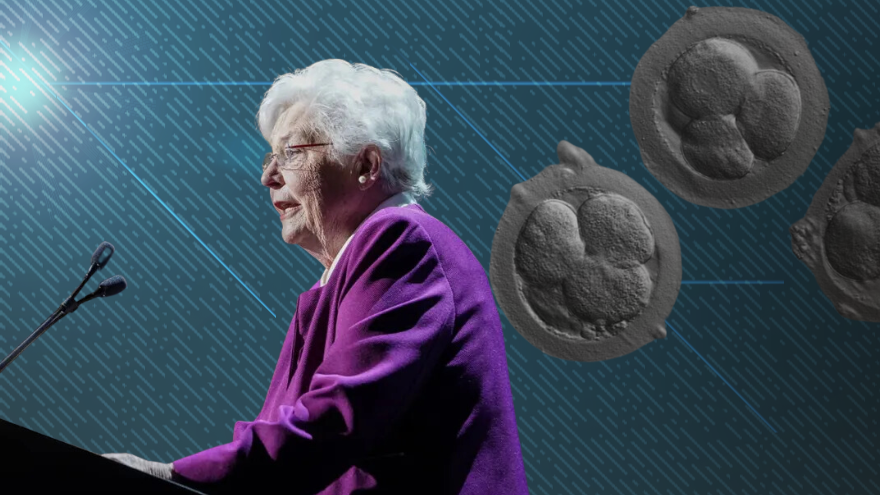Alabama Governor Kay Ivey signed into law new regulations overseeing the treatment of frozen embryos almost three weeks after the state’s Supreme Court ruled embryos created during in vitro fertilization were children.
The ruling prompted concerns among the state’s fertility clinics because frozen embryos are often discarded during the IVF process.
“Alabama works to foster a culture of life, and that certainly includes IVF,” wrote Ivey in a statement on March 6. “I am pleased to sign this important, short-term measure into law so that couples in Alabama joining and praying to be parents can grow their families through IVF.”
“IVF is a complex issue, no doubt, and I anticipate there will be more work to come, but right now, I am confident that this legislation will provide the assurances our IVF clinics need and will lead them to resume services immediately,” said the governor.
Ivey warned that IVF would be at the center of “political rhetoric” as the United States draws closer to the general election. She vowed that her government supports families using fertility treatments and said Alabama is a “pro-life, pro-family state.”
The Alabama legislature passed a proposal that ensures fertility providers cannot face civil and criminal prosecution if an embryo is damaged or destroyed during the IVF process. Both the House of Representatives and Senate passed the companion bills – HB 237 and SB 159.
The bills were subject to almost six hours of debate where members of both political parties expressed concern, according to NBC News. Ultimately, both passed following a 94-6 vote in the House and a 32-0 vote in the Senate.
“We want the clinics to be open,” said state representative Terri Collins, a Republican and the chief sponsor of HB 237. “This is what this is trying to accomplish.”
Representative Chris England, a Democrat, was in favor of a short-term solution and warned a long-term solution may be more difficult to create. He argued that in 2018 Alabama amended its constitution to essentially ensure embryos had “personhood.”
“There are far-reaching ramifications of personhood,” England told AP News.
Three couples sued a fertility clinic and hospital in Mobile after a patient at the facility gained access to their frozen embryos and dropped them on the ground. The embryos were destroyed and the parents cited the state’s Wrongful Death of a Minor Act in their filing.
When it ruled on Feb. 16 that frozen embryos were legally children, the Alabama Supreme Court wrote that “the central question presented in these consolidated appeals, which involve the death of embryos kept in a cryogenic nursery, is whether the Act contains an unwritten exception to that rule for extrauterine children — that is, unborn children who are located outside of a biological uterus at the time they are killed.”
“All parties to these cases, like all members of this Court, agree that an unborn child is a genetically unique human being whose life begins at fertilization and ends at death,” continued the opinion written by Justice Jay Mitchell. “The parties further agree that an unborn child usually qualifies as a ‘human life,’ ‘human being,’ or ‘person,’ as those words are used in ordinary conversation and in the text of Alabama's wrongful-death statutes. That is true, as everyone acknowledges, throughout all stages of an unborn child's development, regardless of viability.”

